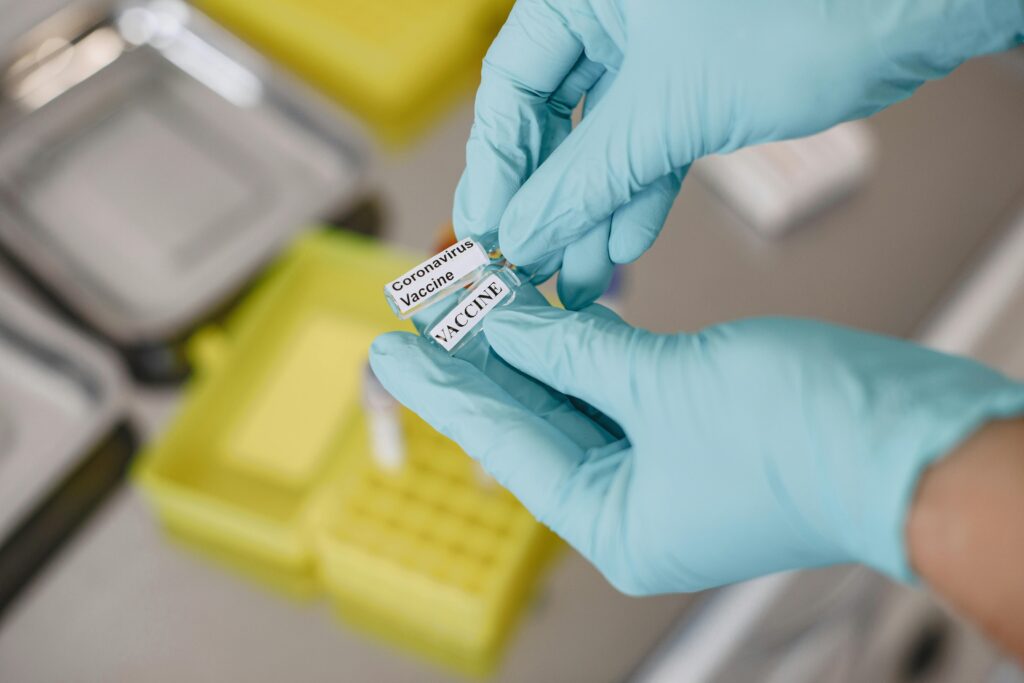Clinical Trial Breakthroughs The American Association for Cancer Research (AACR) Annual Meeting 2025 witnessed a wave of groundbreaking scientific discoveries, with researchers from The University of Texas MD Anderson Cancer Center leading some of the most exciting advancements. Their clinical trial presentations highlighted innovative therapies and promising outcomes that could shape the future of cancer treatment.
Unveiling New Hope in Cancer Care
MD Anderson’s teams unveiled the results of multiple clinical trials focused on novel therapies for a range of cancers including lung, breast, pancreatic, and hematologic malignancies. These studies reflect the institution’s commitment to translating cutting-edge science into effective treatments that can significantly improve patient outcomes.
“Our mission at MD Anderson is to end cancer, and this year’s AACR meeting showcased how close we are coming to that goal,” said Dr. Peter Pisters, President of MD Anderson. “We are proud of our faculty and staff who are bringing forward innovative treatments based on the latest in immunotherapy, precision medicine, and targeted therapies.”

MD Anderson Clinical Trial Breakthroughs
Key Highlights from the Clinical Trials
1. Immunotherapy Breakthrough in Lung Cancer
One of the most talked-about presentations came from Dr. John Heymach and his team, who reported results from a Phase 3 trial of a novel checkpoint inhibitor, IMMUNO-21, for non-small cell lung cancer (NSCLC). Compared to standard chemotherapy, IMMUNO-21 demonstrated a 35% improvement in overall survival and a 42% improvement in progression-free survival.
Notably, patients with specific genetic markers (such as PD-L1 high expressers) benefited even more, showcasing the potential of biomarker-driven immunotherapy.
2. Innovative Targeted Therapy for Triple-Negative Breast Cancer (TNBC)
Triple-negative breast cancer has long posed a significant treatment challenge. Dr. Jennifer Litton’s team presented data on a new antibody-drug conjugate (ADC) targeting the novel marker “CD73”. In a Phase 2 trial, the ADC improved response rates by 50% compared to current standard options.
Patients tolerated the therapy well, with manageable side effects, offering new hope for a subtype of breast cancer that typically has fewer therapeutic options.
3. Revolutionary Advances in Pancreatic Cancer Treatment
Pancreatic cancer, often diagnosed at an advanced stage, has historically had limited effective treatments. Researchers led by Dr. Anirban Maitra showcased a promising combination of a KRAS G12D inhibitor with standard chemotherapy. Early Phase 1 results revealed significant tumor shrinkage in nearly 45% of patients.
“This represents a major step forward,” said Dr. Maitra. “By directly targeting the most common mutation in pancreatic cancer, we hope to finally make meaningful survival gains for our patients.”
4. CAR T-cell Therapy for Solid Tumors
While CAR T-cell therapies have revolutionized the treatment of blood cancers, applying the same strategy to solid tumors has been challenging. A multidisciplinary team at MD Anderson presented results from a first-in-human study using “Armored CAR T-cells,” which are engineered to overcome the hostile tumor microenvironment.
In early results, patients with metastatic colorectal and ovarian cancers showed encouraging response rates without severe toxicities, an important milestone toward expanding CAR T-cell therapy’s reach.
MD Anderson’s Leadership in Precision Medicine
Beyond specific trial results, MD Anderson emphasized its broader vision for precision oncology. Several researchers discussed their work on the APOLLO and ORIEN networks, large-scale collaborations that match patients to targeted therapies based on real-time genomic and proteomic profiling.
Dr. Funda Meric-Bernstam, Chair of Investigational Cancer Therapeutics, noted, “We are entering an era where we can deliver the right therapy to the right patient at precisely the right time. Precision medicine is no longer aspirational — it is reality.”
Bridging Clinical Research and Patient Impact
AACR 2025 also highlighted MD Anderson’s unique ability to rapidly translate research findings into real-world clinical applications. Through initiatives like the Moon Shots Program®, the institution has accelerated the development of therapies that are now improving survival rates across multiple cancer types.
Moon Shot Updates:
- The Lung Cancer Moon Shot reported a 5-year survival rate improvement in early-stage NSCLC patients treated with neoadjuvant immunotherapy.
- The Pancreatic Cancer Moon Shot achieved key milestones in developing early detection biomarkers.
Dr. Padmanee Sharma, Co-Director of the Parker Institute for Cancer Immunotherapy at MD Anderson, stated, “Our approach is holistic — combining basic research, clinical trials, and prevention strategies. Every discovery is evaluated not just for scientific merit, but for its potential to save lives.”
A Commitment to Global Collaboration
Recognizing that cancer knows no borders, Clinical Trial Breakthroughs MD Anderson continues to foster international partnerships. Several presentations at AACR 2025 reflected collaborations with institutions across Europe, Asia, and Latin America, expanding the impact of MD Anderson’s research around the globe.
“Global collaboration accelerates innovation,” said Dr. Ron DePinho, former MD Anderson President and senior researcher. “When we work together, we are stronger in our fight against cancer.”
Looking Ahead: What These Results Mean
The clinical trials presented at AACR 2025 reaffirm MD Anderson’s position at the forefront of cancer research. For patients, these advances translate into more personalized, effective, and less toxic treatments.
For clinicians and scientists, the findings offer new pathways for discovery and intervention. And for the world at large, they bring renewed hope that cancer’s hold over humanity will continue to weaken.
As the AACR 2025 meeting drew to a close, one sentiment echoed throughout the conference halls: the future of cancer care is brighter than ever.
About MD Anderson Cancer Center
The University of Texas MD Anderson Cancer Center in Houston ranks as one of the world’s most respected centers devoted exclusively to cancer patient care, research, education, and prevention. Its mission is to eliminate cancer through outstanding programs that integrate patient care, research, and prevention.
For more information on the clinical trials presented at AACR 2025, visit MD Anderson Clinical Trials.
MD Anderson researchers AACR 2025



